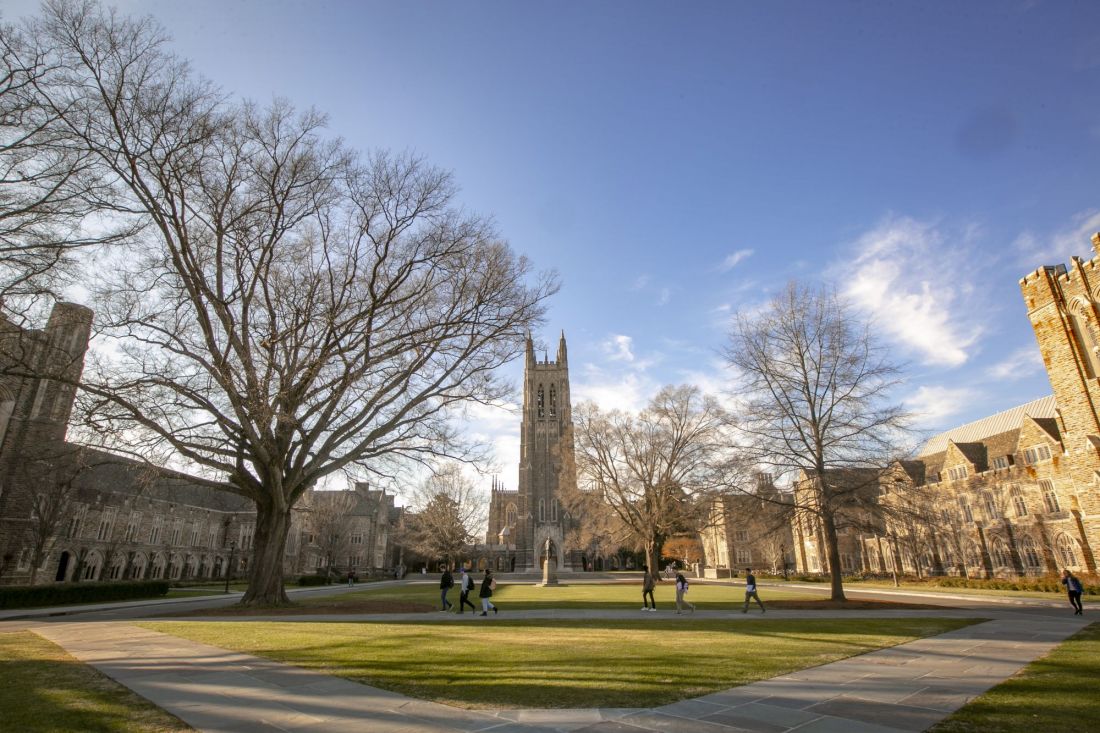The Hybrid Certificate in Theology and Health Care (CTHC) is a one-year course of study designed to equip health care practitioners and leaders with the training to engage their work with theological clarity and spiritual joy. The certificate blends foundational courses in Christian scripture, theology, and church history with specialized courses for those with vocations to health care. It aims to provide theological formation and enhance confidence for those seeking to engage questions of suffering, illness, and the work of healthcare in a faithful Christian life.
The Hybrid CTHC is a full-time program completed in a flexible hybrid format, which combines two separate weeks at Duke Divinity School in August and January with 8 months of distance learning through scheduled Zoom classes and some self-paced learning.
The Hybrid CTHC is offered in two tracks:
- The Health Care Track is designed for those who are working in general medical and health care contexts (e.g., trainees or practitioners of medicine, nursing, occupational and physical therapy, and other health care professions).
- The Mental Health Track is designed for those working in mental health contexts (e.g., trainees or practitioners in social work, clinical psychology, marriage & family therapy, psychiatric nursing, counseling, psychiatry, and licensed addiction counseling).
Curriculum
The course curriculum for the Hybrid CTHC Health Care Track involves three primary components: 1) Cultivating Christian Imagination, a two-semester course that combines scripture, history, and theology in a sweeping tour of Christian tradition and the practices of Christian communities; 2) Health Care in Theological Context, a two-semester course on the intersection of theology and medicine; and 3) Spiritual Formation and Vocation in Health Care, a two-semester course that combines best practices of academic study, spiritual direction, and professional coaching, as students discern what faithful practices look like in their own contexts.
The course curriculum for Hybrid CTHC Mental Health Track involves three primary components: 1) Cultivating Christian Imagination, a two-semester course that combines scripture, history, and theology in a sweeping tour of Christian tradition and the practices of Christian communities; 2) Health Care in Theological Context I, a one-semester course on the intersection of theology and medicine, and Christian Approaches to Mental Health Care, a one-semester course on the intersection of theology and mental health care; and 3) Spiritual Formation and Vocation in Health Care, a two-semester course that combines best practices of academic study, spiritual direction, and professional coaching, as students discern what faithful practices look like in their own contexts (Note: Students in the Mental Health Track study along with Health Care Track students in the fall and meet only with Mental Health Track students in the spring.) Mental health track students will also be matched with a mental health clinician mentor for regular meetings during the academic year.

Graduation Requirements
The Certificate is normally completed in one academic year. Requirements for graduation are:
- Six courses, typically completed in one academic year (maximum, three years).
- Consistent cumulative grade point average of at least 3.0
An education from Duke Divinity School is worth your investment, and you do not have to figure out the finances alone. It is an investment in your education, the church, and our shared future.
Hybrid CTHC students may receive scholarship support covering 25% of tuition costs. A select number of additional 25% scholarships will be awarded to students accepted into the Hybrid CTHC Mental Health Track.
Many other internal and external scholarships, as well as federal financial aid in the form of work study and loans, make it possible for students to afford Duke Divinity. FAFSA should be completed for need-based aid. More information can be found in our Financial Aid section.
Ready for the Next Step?
Duke Divinity School accepts applications beginning in September. The final deadline for applications is April 15. Our admissions requirements include a demonstrated current vocation or intended vocation in health care and a minimum GPA of 3.00 in a bachelor’s degree from a regionally accredited college or university prior to the intended date of enrollment.
Request Info
Join our mailing list, and we'll send you more information.
Request Info about our programsVisit Campus
The best way to learn more about us is to visit. Schedule an in-person or online visit.
Visit Us



